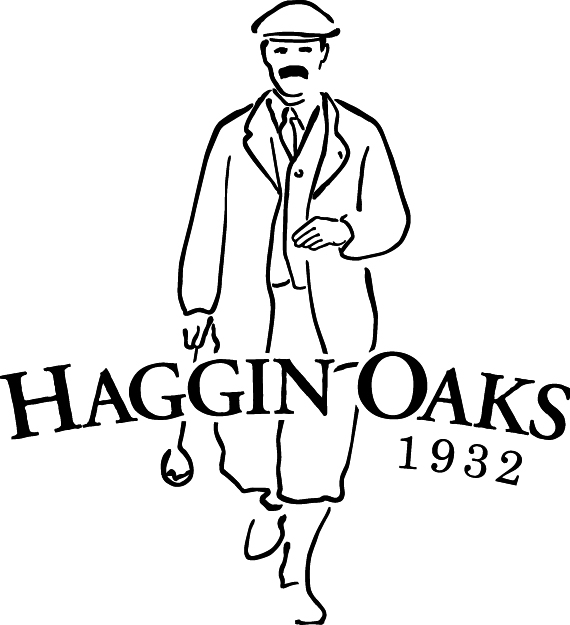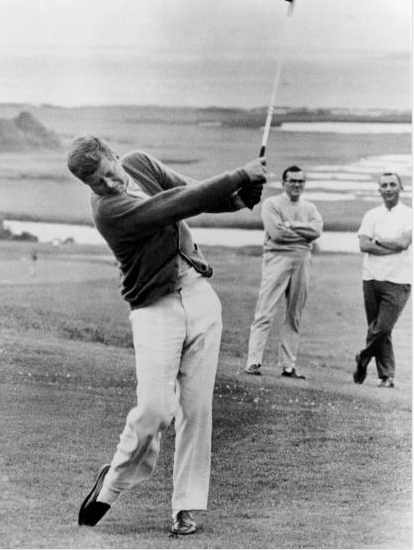by Frank LaRosa, Golf to Go
John Fitzgerald Kennedy was the 35th President of the United States who served at the height of the Cold War, until his shocking assassination in 1963.
Most people over the age of 50 can tell you exactly where they were and who they were with when they heard the news of his death.
JFK was part of a wealthy political family. He graduated from Harvard University and spent time in the U.S. Navy.
As one of the youngest U. S. Presidents, his life seemed idyllic. He was often pictured sailing and playing touch football with his entire family on Cape Cod.
He also played golf and in spite of chronic back pain, he possessed a fluid, graceful golf swing and was capable of shooting in the low 70s.
When in Hyannis port, he would often slip onto the course in the late afternoon and play a handful of holes carrying three or four clubs.
In his third year in office, Kennedy was focused on improving his game. He decided that Arnold Palmer was the man who could help him.
On August 4, 1963 Kennedy walked from his family home to the golf club which was about a par 5 away.
As always, he never ventured into the Members’ Club House and changed his shoes in the club’s modest bag room, sitting on a wooden stool with the telephone linked to the White House there by his side.
He had asked a White House photographer to shoot a slow motion 16-millimeter silent film of his swing on the golf course.
His plan was to invite Arnold Palmer to the White House to view the film and critique the President’s swing.
The photographer returned to Washington to process the film and Kennedy looked forward to inviting Arnie to the White House—as soon as the President returned from Dallas, Texas.
History acknowledges that the youthful, vibrant President’s life was taken on November 22 of that year in Dallas and the meeting of two of the world’s most recognizable figures never took place.
Years later, Arnold Palmer was asked to comment on the long-forgotten film and said, “He looks pretty good over the ball, pretty solid. But he needs to firm up his arms. He’s very fixable…You could see him shooting in the mid-80s.”
Unusual might be what the unknowing gentleman calls a trend-setting man, but Palmer’s other critiques are confined to his realm of real expertise. He starts with JFK’s setup: “He looks pretty good over the ball, pretty solid. But he needs to firm up his arms.”
Then he moves through the motion, assessing the backswing, downswing and putting in turn.
Bill Clinton also makes a cameo in the interview, as Palmer compares and contrasts the Leaders of the Free World. “Clinton’s swing might be a little bit more athletic [than JFK’s].
Not much more so, just a little bit. I played with Clinton the other day, at Trump’s course in New York. Clinton can hit it, but you never know what zip code he’s going to hit it into.”
Summing up, Palmer gives us an idea of JFK’s potential: “He’s very fixable … You could see him shooting in the mid-80s. You could see him shooting 85.”


